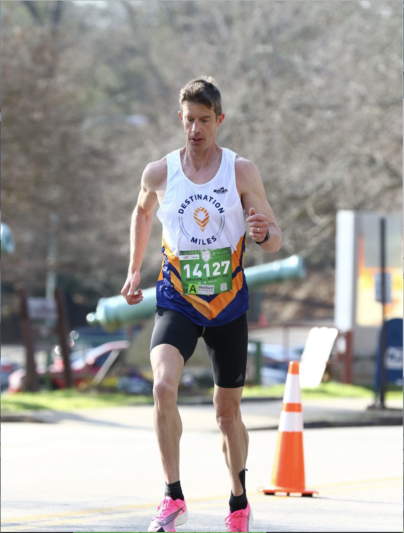 When Matt Fitzgerald was 11 years old, his father ran the Boston Marathon. “I got to run the last mile with him and cross the finish line,” Fitzgerald says. “That one experience hooked me on running for life.” His father was a novelist, and Fitzgerald caught the writing bug from him, too. Fitzgerald was able to combine his passions for running and writing by working as an endurance sports journalist. Through his work, he developed interests in training science and sports nutrition that led him to become a coach and a sports nutritionist. He’s completed 50 marathons, written more than 30 books, coached dozens of runners, and is the co-founder of 80/20 Endurance, the world’s largest dedicated provider of training plans and solutions for endurance athletes.
When Matt Fitzgerald was 11 years old, his father ran the Boston Marathon. “I got to run the last mile with him and cross the finish line,” Fitzgerald says. “That one experience hooked me on running for life.” His father was a novelist, and Fitzgerald caught the writing bug from him, too. Fitzgerald was able to combine his passions for running and writing by working as an endurance sports journalist. Through his work, he developed interests in training science and sports nutrition that led him to become a coach and a sports nutritionist. He’s completed 50 marathons, written more than 30 books, coached dozens of runners, and is the co-founder of 80/20 Endurance, the world’s largest dedicated provider of training plans and solutions for endurance athletes.
Just over three years ago, in February 2020, Fitzgerald was in great health. He ran the Atlanta Marathon and won his age group, placing 15th overall. But a few days later, he felt a tickle in his throat, which erupted into a full-blown respiratory illness. “Never before had I been so sick for so long,” he says. His cough was so severe that he hacked up bile and blood and tore cartilage in his ribs.
Weeks later, Fitzgerald finally felt ready to try a cautious run. That went all right. After several more weeks, he thought he was back to full fitness.
Then he had a bad workout. He dropped fast runs altogether but still felt persistently run-down. Additional symptoms piled on, like erratic pulse, brain fog, shortness of breath, numbness, headache, and memory loss.
Meanwhile, Fitzgerald was preparing for the release of his new book, The Comeback Quotient: A Get-Real Guide to Building Mental Fitness in Sport and Life. In it, he explores how endurance athletes triumph over injuries and setbacks. Fitzgerald posits that some athletes can reach new heights because they fully accept, embrace, and address the reality of their situations.
As Fitzgerald realized he was one of the now 65 million people struggling with the debilitating post-infection multi-system condition known as long COVID, he began to put his own comeback quotient into practice.
“Long COVID has had a hugely negative impact on my mental health and emotional well-being,” says Fitzgerald. “I’ve coped in a long list of ways: letting the people who care about me know I’m struggling, being okay with saying ‘no’ in situations where previously I would have said ‘yes,’ prioritizing the things that bring me joy (e.g., writing), and shifting my focus on self-development to helping and mentoring others.”
One way that Fitzgerald is helping others is through his recently launched Dream Run Camp, which gives runners of all abilities the chance to train and live like pro athletes. The inspiration was Fitzgerald’s 2017 experience of living, training and racing with the Flagstaff-based HOKA Northern Arizona Elite professional running team, which he chronicled in his book Running the Dream. He shares, “I was 46 years old at the time and had never been an elite runner, but by going all-in with the sport I love the way the pros do, my running transformed.” By the end of the summer, he ran his 41st and fastest marathon.
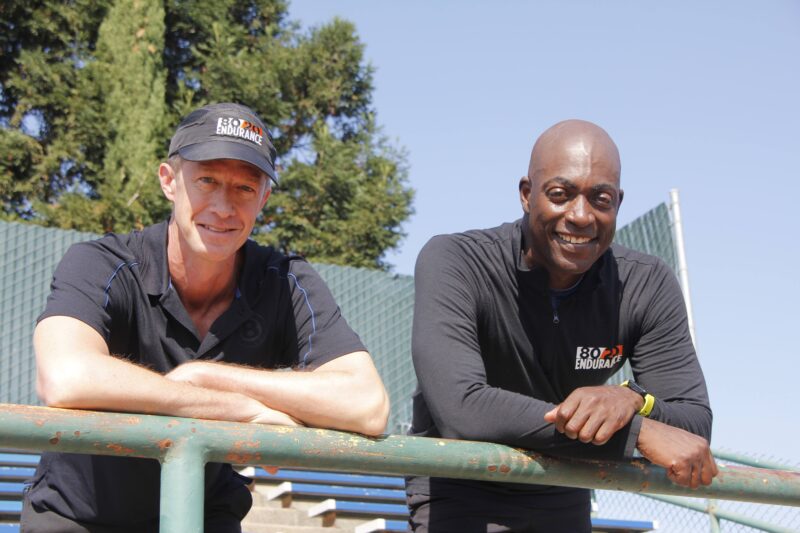 “But more than that,” he notes, “my 13 weeks as a ‘fake professional runner’ where the happiest 13 weeks of my life.” Ever since, he wanted to make that elite experience available to other runners. “In my opinion, too many runners don’t give themselves permission to go all the way with the sport because they feel they’re too slow, too new, too old, or too whatever to deserve it. But I believe every runner with a passion for the sport and a genuine desire to improve deserves to live like a pro for a period of time,” says Fitzgerald.
“But more than that,” he notes, “my 13 weeks as a ‘fake professional runner’ where the happiest 13 weeks of my life.” Ever since, he wanted to make that elite experience available to other runners. “In my opinion, too many runners don’t give themselves permission to go all the way with the sport because they feel they’re too slow, too new, too old, or too whatever to deserve it. But I believe every runner with a passion for the sport and a genuine desire to improve deserves to live like a pro for a period of time,” says Fitzgerald.
And now Dream Run Camp is available to give any runner the chance to do just that. Located in Flagstaff, Arizona, and embracing the motto: “Let your passion, not your ability, decide how far you go,” the camp provides attendees with all of the equipment, facilities, and support that professional runners enjoy—including ElliptiGO bikes. “Lots of professional runners use ElliptiGO bikes, so for me it was a no-brainer to have a couple of bikes available at the facility,” Fitzgerald says. “They will keep Dream Runners fit if they happen to get hurt, help them get fitter when they’re healthy, and give them a fun and eco-friendly way to explore Flagstaff.”
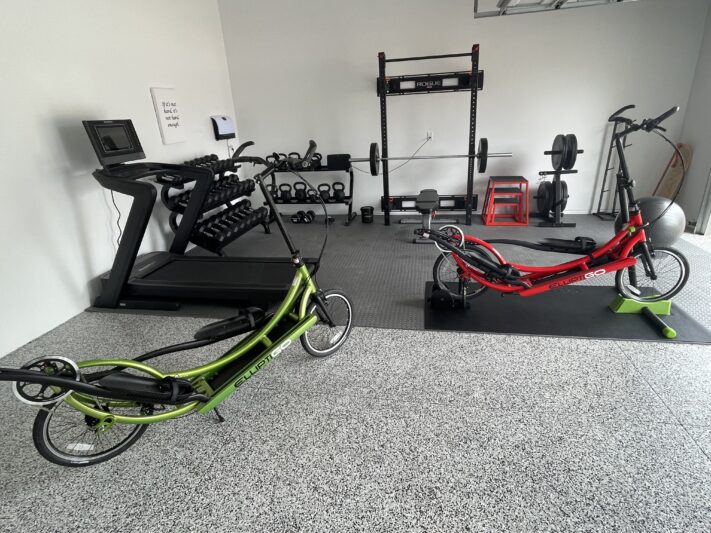 Fitzgerald saw his first ElliptiGO bike in 2009, before they were commercially available. “I was on the press truck at the 2009 Rock ‘n’ Roll San Diego Marathon and [ElliptiGO’s] Erin Whiting was following behind it doing crowd control. It looked like fun, so I made a point of finding out what the heck it was.” A few days later, ElliptiGO’s Chief Enthusiast Officer Bryce Whiting came by the offices of Triathlete Magazine, where Fitzgerald worked at the time, and delivered a bike for him to try.
Fitzgerald saw his first ElliptiGO bike in 2009, before they were commercially available. “I was on the press truck at the 2009 Rock ‘n’ Roll San Diego Marathon and [ElliptiGO’s] Erin Whiting was following behind it doing crowd control. It looked like fun, so I made a point of finding out what the heck it was.” A few days later, ElliptiGO’s Chief Enthusiast Officer Bryce Whiting came by the offices of Triathlete Magazine, where Fitzgerald worked at the time, and delivered a bike for him to try.
As an often-injured runner, Fitzgerald immediately recognized the benefits of ElliptiGO and began to incorporate it heavily into his training. He notes, “In my opinion as a coach, the ideal cross-training activity for runners is one that closely simulates the running action without impact and is enjoyable. ElliptiGO checks all of these boxes.” In his book, 80/20 Running, he advocated for runners to dial down their run intensity 80% of the time and to increase cross-training for better race-day results. He mentioned ElliptiGO in Chapter 12, writing, “After twenty minutes on an indoor elliptical trainer, I’m about ready to scream, but I routinely take my ElliptiGO for two- and three-hour rides and enjoy every minute. Fun matters. The more you enjoy a cross-training activity, the more time you’ll be willing to put into it, and the more fitness you’ll get out of it.”
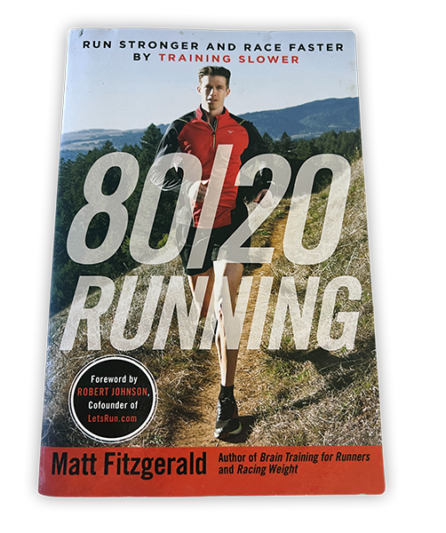 When healthy, he often trained on his ElliptiGO bike at least once a week for extra fitness and reduced injury risk. He also participated in the ElliptiGO World Championships three times, in 2010, 2013 and 2017, finishing third in 2013. During times when Fitzgerald was unable to run, he would train almost exclusively on ElliptiGO. At the end of one of these periods, he ran a 2:58 marathon. “That says something about how well fitness earned on ElliptiGO transfers to running, as my best marathon was 2:39,” says Fitzgerald. “I’ve lost count of how many athletes I’ve coached who have emulated these practices on my recommendation.”
When healthy, he often trained on his ElliptiGO bike at least once a week for extra fitness and reduced injury risk. He also participated in the ElliptiGO World Championships three times, in 2010, 2013 and 2017, finishing third in 2013. During times when Fitzgerald was unable to run, he would train almost exclusively on ElliptiGO. At the end of one of these periods, he ran a 2:58 marathon. “That says something about how well fitness earned on ElliptiGO transfers to running, as my best marathon was 2:39,” says Fitzgerald. “I’ve lost count of how many athletes I’ve coached who have emulated these practices on my recommendation.”
In addition to ElliptiGO bikes, Dream Run Camp features a mind-body recovery lounge, a spa pool with underwater treadmill, a hyperbaric chamber, an outdoor sauna, a vibroacoustic therapy bed, and much more. Runners will enjoy convenient trail access; morning group runs; a coaching consultation or full personal coaching with Fitzgerald; a weekly live or remote guest speaker; optional access to NAZ Elite-affiliated strength coaches, sports dietitians, sports psychologists, and massage therapists; and plenty of running camaraderie. Attendees can choose from a pro- or elite-level experience and stay for just one week or up to 12 weeks.
Fitzgerald notes, “I wanted to eliminate as many barriers as possible to coming here, including the financial barrier. Dream Run Camp is a lot less expensive than most runners expect it would be. Inclusivity is the name of the game at Dream Run Camp!” Interested campers can fill out a no-obligation interest form.
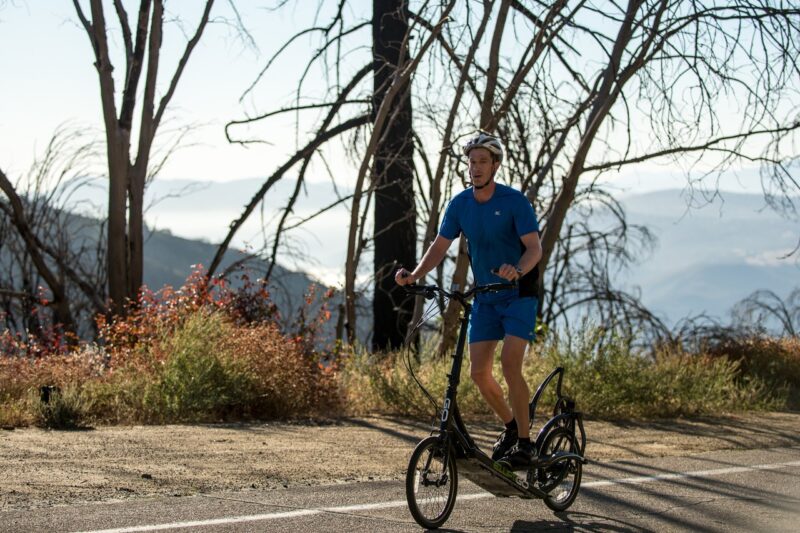 Fitzgerald also recently founded and co-directs the Coaches of Color Initiative (COCI). COCI’s goal is to enrich the endurance sports experience for everyone by fostering a more diverse and inclusive community. To reach that goal, COCI provides meaningful support and opportunities for people of color who aspire to successful careers as endurance coaches.
Fitzgerald also recently founded and co-directs the Coaches of Color Initiative (COCI). COCI’s goal is to enrich the endurance sports experience for everyone by fostering a more diverse and inclusive community. To reach that goal, COCI provides meaningful support and opportunities for people of color who aspire to successful careers as endurance coaches.
Fitzgerald explains, “Improving BIPOC representation at the coaching level is a potent way of diversifying endurance sports generally, which enriches the entire community.” He adds, “In my experience, most ElliptiGO enthusiasts aren’t just enthusiasts, they’re also evangelists for the experience. They want more people to enjoy what they enjoy. COCI is animated by that same spirit.”
Reflecting on his accomplishments amidst his struggles of the past three years, he shares, “I’ve entered a phase of my life where it’s not about me anymore; it’s all about serving others. Bringing transformative experiences to runners at Dream Run Camp and creating life-changing opportunities for young coaches of color through the Coaches of Color Initiative bring me joy and make my life fulfilling even when I’m suffering inside.”
“I’m still the same person I was before I got sick,” says Fitzgerald. “That person has a gigantic appetite for life and work and creativity.”


One Response
Thanks for the interesting article. I would love to attend Matt’s Dream Run Camp but opportunities like that to do on a teacher’s . Salary. when I ride my Go to school though, I get a lot of looks and questions from my students. Some even make the effort to search the website. Very few people, including teachers, are familiar with the stand-up concept.